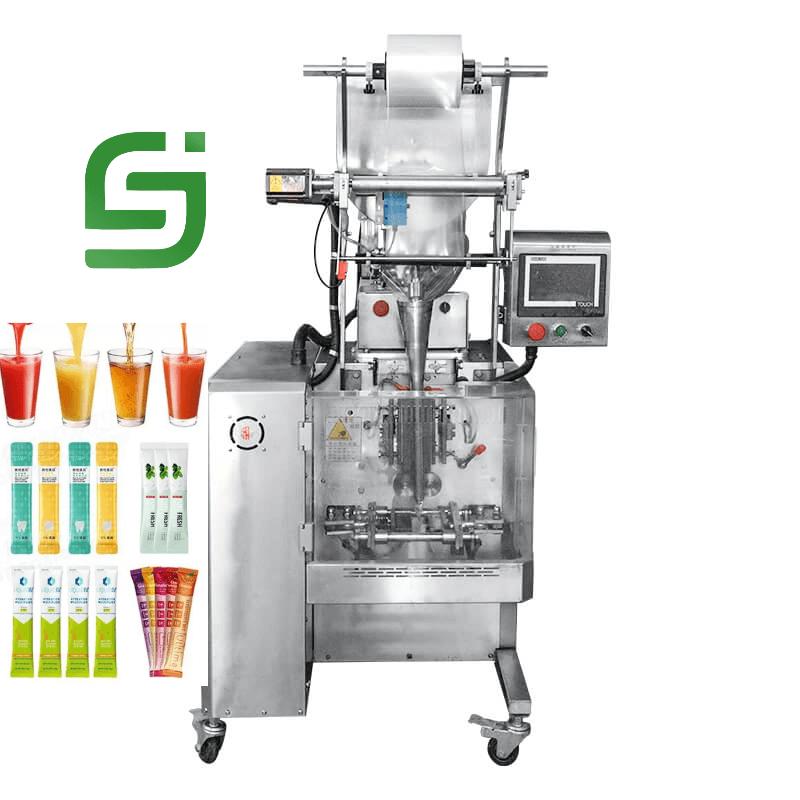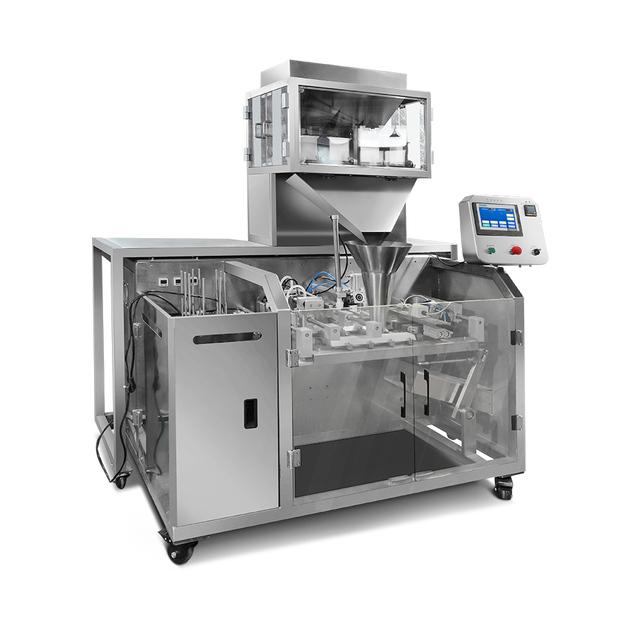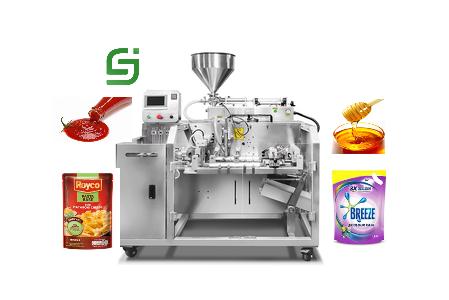Author:YISEN Pouch Packing Machine Manufacturer TIME:2024-12-14
The pharmaceutical industry is one of the most rapidly evolving sectors globally, driven by technological advancements and increasing consumer demands. Among the innovations that have significantly influenced this sector is the development of powder packaging machines. These machines are essential for the efficient, safe, and cost-effective packaging of pharmaceutical powders, which are widely used in various formulations, including tablets, capsules, and injections. This article explores the wide application of powder packaging machines in the pharmaceutical industry, highlighting their importance, benefits, and future prospects.

Powder packaging machines play a crucial role in the pharmaceutical manufacturing process. They are designed to handle a wide range of powder products, ensuring accurate filling, sealing, and labeling. By automating the packaging process, these machines enhance productivity, reduce human error, and maintain high levels of hygiene—critical factors in the pharmaceutical industry. Moreover, they can accommodate various types of powders, including active pharmaceutical ingredients (APIs) and excipients, making them versatile tools in any drug production facility.
There are several types of powder packaging machines used in the pharmaceutical industry, each designed to meet specific needs. The most common types include vertical form-fill-seal (VFFS) machines, horizontal form-fill-seal (HFFS) machines, and rotary powder filling machines. VFFS machines are popular for their efficiency in producing pouches or bags, while HFFS machines are ideal for jars and bottles. Rotary powder filling machines are often employed for precise filling of large quantities of powders, ensuring consistent weight and volume. Each type plays a vital role in different stages of the packaging process, catering to varying production requirements.
The adoption of powder packaging machines in the pharmaceutical sector offers numerous advantages. Firstly, they significantly increase production speed, enabling manufacturers to meet high demand without compromising quality. Secondly, these machines enhance consistency in packaging, reducing the risk of contamination and ensuring that each package adheres to regulatory standards. Additionally, automation minimizes labor costs and allows for more efficient use of resources. Lastly, modern machines are equipped with advanced technology, such as sensors and software, which facilitate real-time monitoring and data collection, further optimizing the packaging process.
In the pharmaceutical industry, adhering to strict regulatory standards is paramount. Powder packaging machines are designed to comply with Good Manufacturing Practices (GMP) and other regulations set forth by health authorities. These machines often come with features that ensure traceability and documentation, essential for audits and quality control. Furthermore, advanced sterilization techniques integrated into the machines help maintain product purity, safeguarding against contamination that could compromise patient safety.
Another significant benefit of powder packaging machines is their ability to be customized for specific product requirements. Manufacturers can adjust settings for different powder types, packaging sizes, and formats, allowing for flexibility in production. This adaptability is particularly important in the pharmaceutical industry, where the introduction of new products and formulations is common. Customized solutions enable companies to respond quickly to market changes and consumer demands, thereby maintaining a competitive edge.

Recent technological advancements have revolutionized powder packaging machines, enhancing their functionality and efficiency. Innovations such as smart sensors, artificial intelligence, and IoT connectivity allow for better monitoring and control of the packaging process. These technologies enable predictive maintenance, reducing downtime and increasing overall productivity. Furthermore, automated quality inspection systems can identify defects in real-time, ensuring that only high-quality products reach the market. As technology continues to evolve, we can expect even greater improvements in powder packaging capabilities.
Sustainability is becoming increasingly important in all industries, including pharmaceuticals. Powder packaging machines are now being designed with eco-friendly materials and processes in mind. Manufacturers are investing in biodegradable films and recyclable materials to minimize environmental impact. Additionally, energy-efficient machines reduce consumption during production, aligning with global sustainability goals. By adopting greener practices, pharmaceutical companies not only comply with regulatory requirements but also appeal to environmentally-conscious consumers.
Despite the advantages of powder packaging machines, the pharmaceutical industry faces several challenges. One major concern is the complexity of regulatory compliance, which varies across regions. Adapting packaging processes to meet diverse regulatory requirements can be resource-intensive. Additionally, the rapid pace of technological change means that companies must constantly update their equipment to stay competitive, which can be a significant investment. Lastly, supply chain disruptions—exacerbated by global events—can affect the availability of materials needed for packaging, impacting production schedules.

The future of powder packaging in the pharmaceutical industry looks promising. With advancements in technology, we can expect more automation, improved efficiency, and enhanced safety measures. The integration of artificial intelligence and machine learning will likely lead to smarter machines capable of optimizing the packaging process based on real-time data. Furthermore, as the demand for personalized medicine grows, powder packaging machines will need to adapt to accommodate smaller, more diverse batches. This evolution will create new opportunities for manufacturers to innovate and cater to changing market needs.
In conclusion, the wide application of powder packaging machines in the pharmaceutical industry is reshaping how products are manufactured, packaged, and distributed. Their ability to enhance efficiency, ensure regulatory compliance, and offer customization makes them indispensable in modern pharmaceutical operations. As technology continues to advance and sustainability becomes a priority, these machines will evolve further, providing even greater benefits to manufacturers and consumers alike. Embracing these innovations will be crucial for pharmaceutical companies aiming to maintain their competitiveness in an ever-changing landscape.